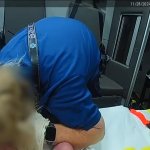To access the Herald’s local coronavirus/COVID-19 coverage, click here.
COURT HOUSE – After a month focusing on the battle with the coronavirus (COVID-19) pandemic, questions about reopening the local economy have dominated discussions in the past week.
When Gov. Phil Murphy issued his stay-at-home order March 21, Cape May County had three confirmed cases of the virus. The outbreak in the state’s north led to aggressive social distancing measures, including closing businesses and banning non-essential travel before the virus had a significant foothold in the southern counties.
One month later, on April 20, the county Department of Health (DOH) reports that the county has experienced 217 total cases, with 62 of those individuals recovered sufficiently to be moved off of quarantine. For the first week since the virus arrived in Cape May County, the total number of active cases reported by DOH decreased.
With 140 cases still active, with 15 reported deaths, county and municipal officials realize this is not the time to take their eye off the ball regarding public health in the contagion. Yet, it may be time to look at alternative strategies.
State health officials dealing with almost 90,000 total cases and over 4,000 associated deaths acknowledge that the curve of new cases is flattening. Health Commissioner Judith Persichilli noted that hospitalizations are “trending” in the right direction.
County and municipal leaders say it is time to consider how the summer tourist season could be saved. The “patient” many of those officials are concerned about today is the county’s annual over $6-billion tourism economy, a sector that supplies almost two out of every three jobs in the county’s economy, according to statistics released by the Office of Tourism in previous years.
Middle Township Mayor Timothy Donohue said, at a recent Township Committee meeting, that the impact of a “lost summer” would be a catastrophe from which the county would take years to recover. Municipalities have started economic recovery teams. The county has appointed a Business Recovery Task Force.
Conversations continue with state legislators and the governor’s office. Some form of a recovery plan is likely to surface for public discussion soon.
According to Murphy, he cannot lift the lockdown until the state sees substantial increases in test capability. He set a minimum threshold of 15,000 to 20,000 tests per day with a 24-hour turnaround April 20. This, he said, was his target for considering changes in the regulations keeping non-essential businesses closed and ordering people to stay at home for all but the most necessary activities.
Currently, the 70-plus state testing sites are running at half of the level the governor said he wants before he considers easing restrictions. “We have to be in a completely different place in the next four to six weeks,” he said.
The public health threat remains real and cannot be discounted. The economic threat to a county so dependent on the revenues from its summer season is real.
Lodging, food and beverage sales, heightened retail activity, recreation spending, second-home rental income – these are the local economy’s life blood and provide the residual resources to see many county residents through the offseason.
Striking the right balance between public health and economic vibrancy is the challenge of the moment.
To contact Vince Conti, email vconti@cmcherald.com.
ED. NOTE: See the Herald website for daily COVID-19 updates and related coverage.
Town Bank – The hat? Dowdy Plain Jane Washington doesn’t understand a beautiful former model wearing European high fashion? Who knew?








